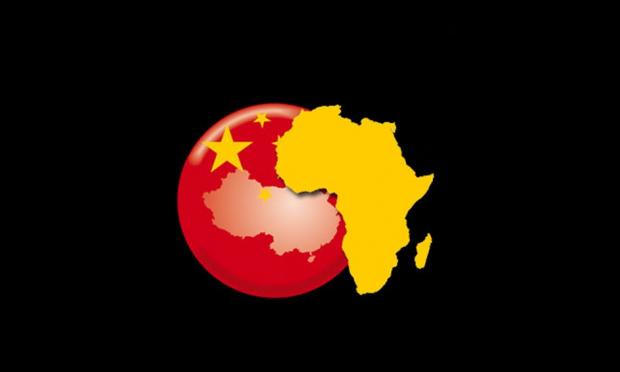China is building massive infrastructure in Africa and aggressively expanding its presence in different industrial sectors of Africa. However, the African workers in Chinese companies continue to be exploited and face racism at the hands of their employers. The recent incident in Sierra Leone where a Chinese worker violently attacked a Sierra Leonean employee highlights the attitude of Chinese foreign nationals towards the locals in the country.
The video of this incident went viral and triggered a strong backlash on social media, gathering strong negative opinions
from the local populace.
This video is one among many other videos that surface regularly on social media about ill-treatment of African workers in Chinese companies, underlining the systematic and widespread tensions that exist between the two groups. In 2020, a Zimbabwean rights-based group has condemned Chinese-run mining companies of rampant abuse after two workers were shot and wounded by the Chinesemanagers. The workers had complained about outstanding wages. The Zimbabwean Environmental Lawyers Association (ZELA) in a statement after the incident pointed out that wages are either often low or are not paid on time and if a worker tries to exercise his right as a worker, he is either assaulted or shot.
Forced labour and torture is rampant in the Chinese-run mining industry. Zimbabwe has signed multiple deals with China and in 2019, a mining deal was signed between the Zimbabwe government and a Chinese firm Tsignchan to extract iron ore, chrome, nickel and other natural resources. As a result, there are thousands of Chinese people in Zimbabwe and such large numbers have caused tensions with the local population. These concerns have been exacerbated with Covid-19 pandemic and according to civil society groups, there are several cases of Chinese miners refusing to pay salaries or provide their workers with protectiveclothing during the pandemic.
The workers continue to work in dangerous, harsh and life-threatening conditions and are paid poorly while being abused and discriminated by the Chinese miners. There are gross human rights abusesranging from beating to unfair dismissals in these companies.
In 2020, there were also revelations on social media about worker abuse in Nigeria where the Chinese factories were referred to as slave camps. Incidents of violence and abusive behavior by Chinese nationals working and living in Africa are thus a familiar occurrence in many countries around the continent. There have been concerns around labour practices followed in Chinese companies which are often viewed as unfair and discriminatory. Similar encounters have been reported from countries like Zambia and Nigeria.
Zambia, in particular, has witnessed multiple violent incidents and recently in 2019, three Chinese factory owners were killed by disgruntled employees. Earlier also, Zambian copper mining sites have been ahotbed of clashes between the two sides. In 2010, at the Collum Coal Mine in the southern town of Sinazongwe in Zambia, Chinese executives opened fire at works who were protesting against poor pay and poor working conditions at the mine.
These incidents have repeatedly brought to light how Chinese-owned companies have failed to enforce basic health, safety and labour laws.
For instance, Human Rights Watch, in their 2011 Report, highlighted how Chinese- owned companies and in particular, China’s Non-Ferrous Metals Mining
Corporation had mistreated Zambian workers. The report pointed out that employees of Chinese-run companies have been subjected to abusive health, safety and labour conditions. There were also consistent threats to fire employees who refused to work in unsafe underground conditions.
While in 2012, a report by Johannesburg-based South Africa Resource Watch (SARW) also revealed that Chinese companies were engaged in widespread labour abuses in sub-Saharan Africa, subjecting local employees in the mining industry to harsh and unfair working conditions. In the past two decades, workers, labour advocates and human rights organization have, at numerous instances, emphasized the unfair
labour practices in Africa.
Along with accusations of low wages, poor working and living conditions, Chinese companies are also accused of hiring Chinese in managerial posts and offer little training and skills development for African
employees.
Apart from these, lack of communication owing to language barriers and cultural differences between the two sides also often creates misunderstandings. Most of Chinese technicians do not speak English well and rely on interpreters to convey their ideas to local workers.
These factors affect African perspectives and the relations between Chinese foreign nationals and local African communities. Moreover, the direct competition between Chinese small-scale investors and their
African counterparts have also become a prime reason for anti-China feelings in Africa. While there may exist cordial relations at the state level, this may not be the case at the subnational level. Disputes related to labour practices and blaming Chinese for issue such as youth unemployment and affecting local businesses have led to a push back against Chinese projects in the region.
China is itself a country that is criticized for weak human rights record and weak labour laws. Such repeated incidents expose continued exploitation of labour by the Chinese companies in Africa over the last decade. At a time when China is already being criticized for gross human rights violations in Xinjiang, these encounters have dented China’s global reputation further. The Chinese companies might be bringing infrastructure and finance to Africa, but there are important concerns that Africans need to emphasise in their relations with Beijing. The governments in Africa need to step up their role and strengthen the rule of law in
the country with better labour laws in place. While the governments may be benefitting financially from the Chinese presence, these encounters between Chinese employers and African workers severely affect the relations at the ground level. The African governments, civil society organization and labour unions need to take a leading role in how their people are treated on the continent.















